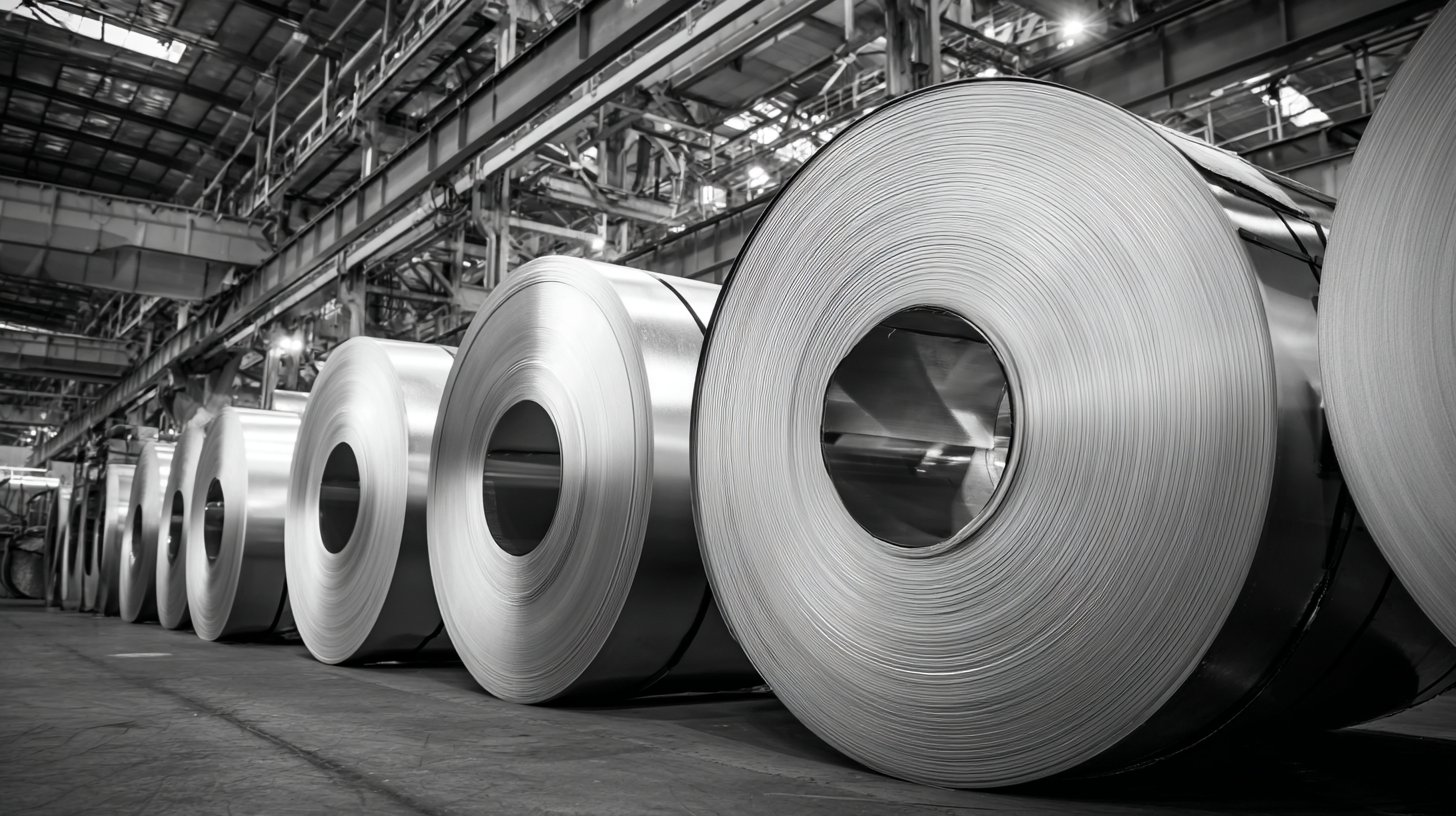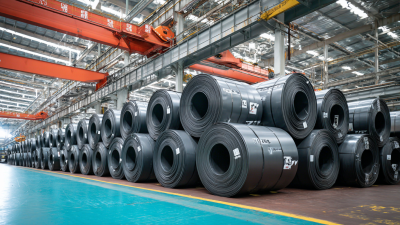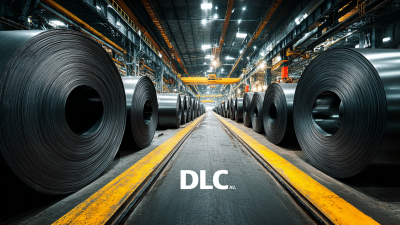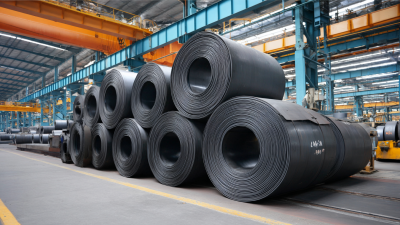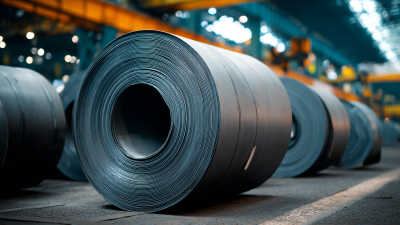The increasing demand for Carbon Steel Coil Cold Roll has become a focal point in modern manufacturing industries, driven by its versatility and strength. As reported by the World Steel Association, global steel demand is expected to rise by 1.7% in 2023, with carbon steel products gaining prominence in sectors such as automotive, construction, and home appliances. Specifically, the cold rolling process enhances the mechanical properties of steel coils, making them ideal for applications requiring superior surface finish and precise dimensions.
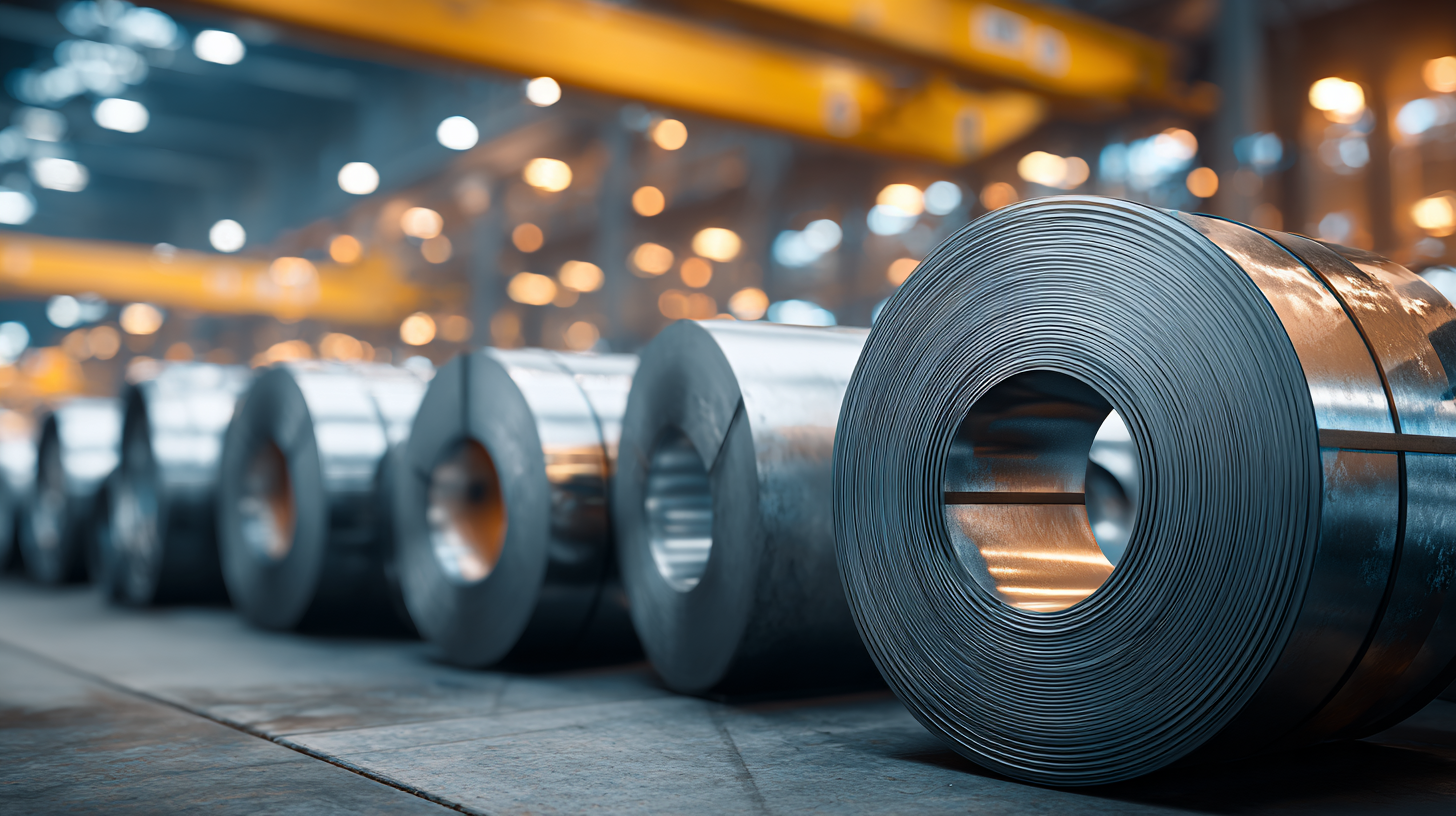
Industry analysts predict that the market for Carbon Steel Coil Cold Roll will witness significant growth, projected to reach USD 164 billion by 2025, attributed to the continuous innovation in manufacturing processes and the escalating need for lightweight yet durable materials. This article delves into the factors contributing to this burgeoning demand and the implications for manufacturers striving to meet modern industrial requirements.
The significance of carbon steel coil cold roll continues to rise in modern manufacturing industries, driven by its versatile applications and growing demand. As industries increasingly seek materials that combine strength and ductility, cold rolled steel has emerged as a preferred choice. Its superior surface finish and tighter tolerances make it ideal for a variety of applications, from automotive components to appliances and construction materials.
According to projections, the global cold rolled coil steel market is expected to see substantial growth, expanding from $88.35 billion in 2025 to $134.71 billion by 2032, with a CAGR of 6.2%. This growth is indicative of the material's critical role in enhancing operational efficiency and product quality across countless industrial applications. As manufacturers prioritize sustainability and cost-effectiveness in their operations, carbon steel coil cold roll stands out as an essential material that aligns with these evolving industry demands.
| Application Industry | Market Share (%) | Growth Rate (CAGR %) | Key Properties |
|---|---|---|---|
| Automotive | 30 | 6.5 | High tensile strength, ductility |
| Construction | 25 | 5.8 | Corrosion resistance, weldability |
| Appliance Manufacturing | 20 | 4.5 | Surface finish quality, formability |
| Electrical Equipment | 15 | 7.2 | Electrical conductivity, thermal stability |
| Aerospace | 10 | 8.0 | Lightweight, high strength |
The demand for cold rolled carbon steel coils is witnessing significant growth across various manufacturing industries. Key sectors driving this demand include automotive, construction, and appliance manufacturing. In the automotive industry, cold rolled steel is favored for its superior surface finish and dimensional accuracy, which are crucial for producing body panels and structural components. As the automotive sector moves towards lighter and more fuel-efficient vehicles, the need for high-strength cold rolled steel continues to rise.
In the construction sector, the versatility and strength of cold rolled carbon steel make it an ideal choice for building frameworks, roofing, and prefabricated elements. The ability to be easily formed and fabricated into complex shapes ensures that it meets the architectural demands of modern infrastructure projects. Additionally, the appliance manufacturing industry relies heavily on cold rolled steel for producing durable and aesthetically pleasing products, ranging from refrigerators to washing machines.
**Tips:** When considering the use of cold rolled carbon steel, manufacturers should focus on material quality and cost-effectiveness. Additionally, staying informed about the latest advancements in steel processing technology can provide an edge in production efficiency and product performance. Exploring collaborations with reliable suppliers can also enhance supply chain resilience, ensuring timely access to this vital resource.
In modern manufacturing industries, the choice of materials can significantly impact production efficiency, cost, and product quality. Carbon steel coil, particularly in its cold-rolled form, has emerged as a formidable contender against other material alternatives such as aluminum and stainless steel. One of the key advantages of carbon steel coil is its strength and durability, making it ideal for applications that require high tensile strength and structural integrity. Unlike aluminum, which is lightweight and corrosion-resistant but often lacks the same level of strength, carbon steel offers a unique blend of robustness and affordability, making it a preferred option for many manufacturers.
When compared to stainless steel, which is known for its corrosion resistance and aesthetic appeal, carbon steel coil holds its ground in terms of cost-effectiveness. While stainless steel often comes with a higher price tag, carbon steel's availability and lower production costs make it an economical choice for bulk manufacturing. Additionally, advancements in surface treatment technologies for carbon steel are addressing concerns related to corrosion, widening its applicability and appeal in industries that require high performance without the premium cost associated with stainless steel. This comparative analysis underscores the growing preference for carbon steel coil in modern manufacturing, as it balances performance, cost, and versatility effectively.
Recent advancements in technology have significantly transformed the manufacturing processes of carbon steel coil cold roll, making them more efficient and sustainable. Innovation in automation and digitalization has streamlined production lines, reducing manual labor and minimizing errors. For instance, the integration of smart sensors and IoT devices enables real-time monitoring of the manufacturing process, allowing for immediate adjustments and quality control. This not only enhances output but also ensures that the final products meet the stringent standards required in modern production environments.
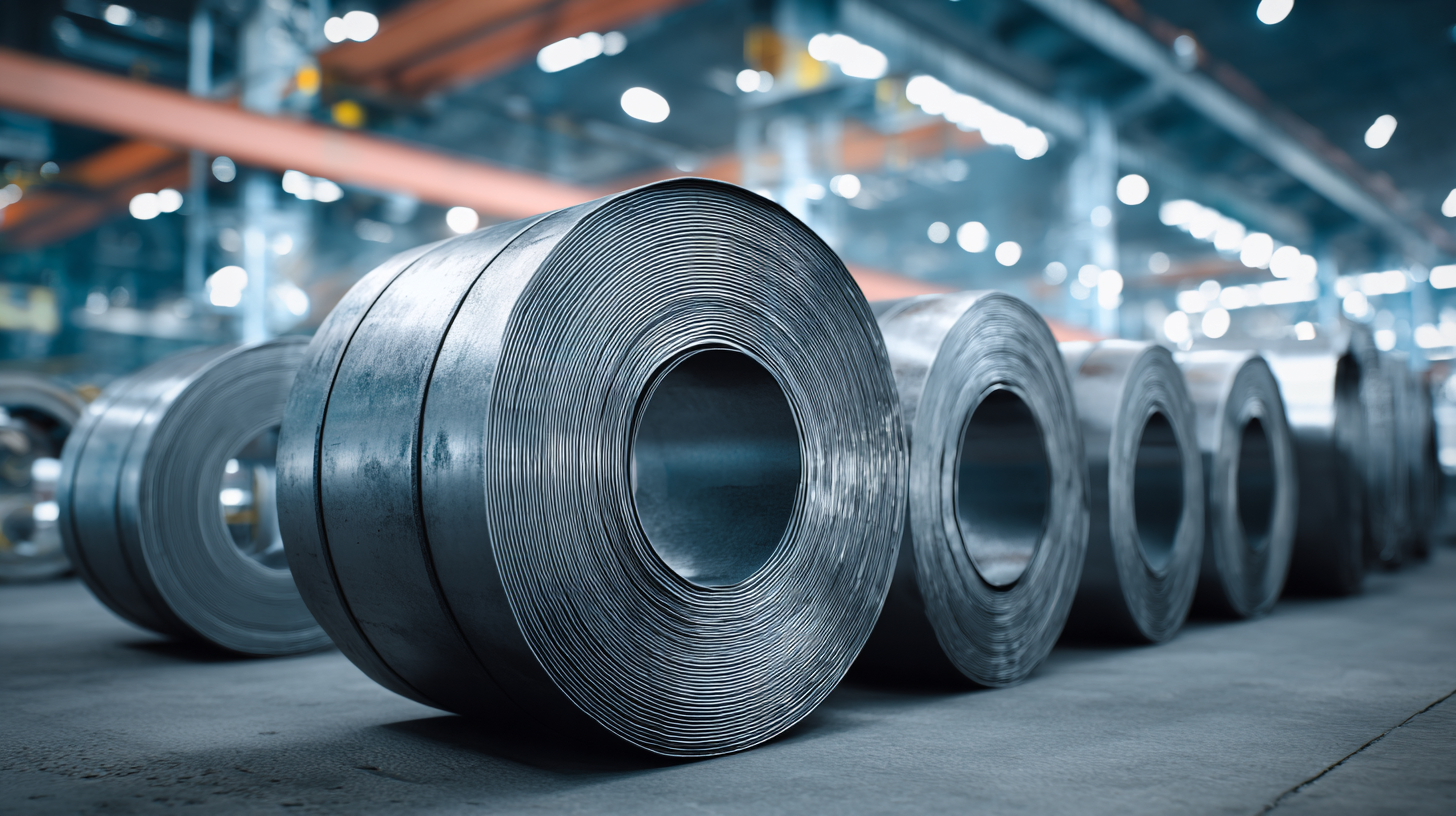
Moreover, eco-friendly technologies are becoming increasingly prevalent in the manufacturing of carbon steel coils. The incorporation of energy-efficient systems and waste-reduction methods is helping manufacturers lessen their environmental impact. New techniques, such as advanced coating technologies and recycling of waste materials, contribute to a more sustainable lifecycle for carbon steel products. As industries strive for greener practices, these technological innovations are essential for maintaining a competitive edge while addressing environmental concerns.
The rise of sustainability trends across various sectors is significantly influencing the manufacturing industries' approach to carbon steel coil cold roll usage. As industries increasingly prioritize eco-friendly practices, the demand for carbon steel, particularly in its cold-rolled form, is being driven by its recyclability and lower energy consumption during production compared to other materials. Manufacturers are now focusing on adopting advanced techniques that not only enhance product quality but also minimize environmental impact, making carbon steel a more appealing choice in sustainable manufacturing.
Tip: Consider implementing a closed-loop system for carbon steel coil production. This approach not only reduces waste but also promotes the reuse of materials, contributing to a more sustainable manufacturing process.
Sustainability extends beyond production techniques; it also influences product design. Modern manufacturers are encouraged to innovate with carbon steel, developing lightweight structures that reduce resource consumption without compromising strength or durability. This shift towards lightweight design is proving beneficial for sectors such as automotive and construction, where efficiency and sustainability go hand in hand.
Tip: Engage with suppliers committed to sustainable practices. Collaborating with environmentally responsible partners can enhance your supply chain's sustainability profile and ensure that your materials are sourced ethically.
